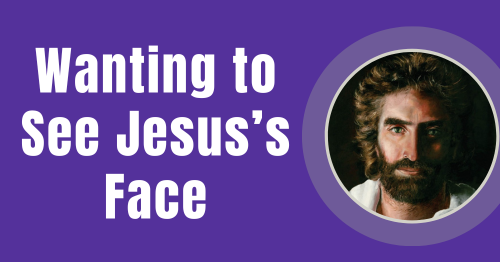Better to be liked or make your case? Three Lessons from the First Presidential Debate
If there is one thing we are learning from Election 2012, it’s that even the “smartest guys in the room” are agonizing over how much to focus their message on empathy or reasoning. Likeability or a robust contention for facts and evidence. In this week’s debate President Obama opted to forego answering Gov. Romney’s questions about his record. Postmodern conventional wisdom tells us that if we want to win others to our point of view we do it with empathy and likeability more than evidence and facts. If you argue the facts, appeal to reason, you can seem angry and unlikable. So appeal to emotions more than reason. Just be nice.
The resounding “thud” of conventional wisdom falling flat was heard from the debate hall to the Twitterverse. Is there a lesson for us as we try to win a hearing for the gospel?
If there is one thing we are learning from Election 2012, it’s that even the “smartest guys in the room” are agonizing over how much to focus their message on empathy or reasoning. Likeability or a robust contention for facts and evidence. In this week’s debate President Obama opted to forego answering Gov. Romney’s questions about his record. Postmodern conventional wisdom tells us that if we want to win others to our point of view we do it with empathy and likeability more than evidence and facts. If you argue the facts, appeal to reason, you can seem angry and unlikable. So appeal to emotions more than reason. Just be nice.
The resounding “thud” of conventional wisdom falling flat was heard from the debate hall to the Twitterverse. Is there a lesson for us as we try to win a hearing for the gospel?
We have only to look back to the Republican primary to see that heated, contemptuous debate indeed alienated not only postmoderns but many others. So it seemed the Republican Convention was focused on the likeability issue. Focused on testimonials of Mitt Romney’s kindness and character.
Again the conventional wisdom for winning a postmodern audience has been, “We live in times where truth claims invite suspicion. Facts and empirical evidence don’t connect as much as stories and appeals to emotion.” So simplify your facts to five easy points. And tell lots of stories to build empathy and likeability.
And the Democratic convention pretty much followed suit except…Bill Clinton’s speech on behalf of President Obama. Surprisingly, the architect of “I feel your pain” political strategy gave the most factual, evidential speech of either convention. He repeatedly appealed to people’s reason to make his case that this recession was so bad that not even he could turn things around in just four years.It was reported that speech writers crossed a lot of it out and Clinton added it all back in. Forty-eight minutes worth.
The response to all his data and arguments by the more postmodern party supporters? “Bill Clinton is up there teaching,” tweeted Chris Rock."Listen up young ppl…You better listen to EVERYTHING this man has to say!!" “Bill Clinton's speech is fantastic. Passion, common sense, and straight talk!," added Alicia Silverstone.
In the first debate it was Romney with more facts and evidence. Reason and logic. And the President smiling, above the fray, trying to be likeable. And just as with President Clinton, Romney hit it out of the park. We who desire to invite today’s audience to trust and follow Jesus could learn from these candidates seeking to gain people’s trust and vote.
1. Evidence and reason DO move us. “Come let us reason together,” says the Lord, “though your sins be as scarlet they shall be white as snow.” We are people who have been made to reason with our Creator and be moved by facts and reason. As the cultural pendulum swings hard from an over-emphasis on thinking to an over-emphasis on feeling, we can see that this approach does not resonate completely with who we are as human beings made in God’s image. We are both emotional and rational creatures. The message God delivers in his Word is both facts and poetry. Proposition and metaphor. Jesus communicated with syllogisms and logic as well as parables and personal narrative. To a culture that asks, “Why does it have to be “either/or?” he favored the law of non-contradiction: “He who is not for me is against me.”
2. Evidence and reason need to be wrapped in stories and delivered from the context of a life that shows I CARE. Romney received high marks for wrapping his points and data in stories people could relate to and stories from his life that showed how he does care about people, even his political opponents. The postmodern recovery of delivering facts for the head and stories for the heart lines up more with God’s own holistic approach. The incarnation and sacrificial death of Jesus show to what lengths God will go to show us he cares for us. Just how close he is to the broken-hearted.
3. Strong, authentic emotion is contagious. With gentle humor, hopeful excitement, confident expectation, serious concern, deep longing, not overwrought but authentic and appropriate to the situation, Clinton and Romney both pulled the audience into their emotional wake. As Phillip Yancey documents in The Jesus I Never Knew, Jesus was more emotional, not less than the average person. To be fully alive is to fully engage emotionally. And Jesus was the most fully alive person who ever walked the face of the earth.
Always be prepared, the apostle Peter tells us "to make a defense to anyone who asks you for a reason for the hope that is in you; yet do it with gentleness and respect”(1 Peter 3:15-16). We are called to offer the truth of the gospel using reason, but also gentleness. I don’t believe that just means a gentle tone of voice. I believe it means the gentleness of stories, speaking as a fellow traveler, showing genuine empathy for others from an authentic life of love and care-giving.
That combination is extremely hard to calibrate. We don’t need to dumb things down or focus on emotions as much as conventional wisdom tells us. Thankfully, more than the example of successful politicians, we have the indwelling Holy Spirit to show us how to employ reason and empathy in ways that he will use to illumine minds and hearts with truth.


